If I’m completely honest I’ve lost my bearings and my confidence in lockdown. Things I would have otherwise done unthinkingly have become sticking blocks of uncertainty. I’ve been trying to take on a bit of a new role in my work and to challenge myself to do something different with my personal projects and in that process of way finding I’ve been looking up for signs, because that’s what I’d seen others do, and lost my grounding.
When I don’t feel like I’m doing my best or like I’m solidly making progress it gets to me. It becomes a vicious cycle of slipping up or struggling turning into a negative mindset turning into negative ways of working turning into more struggling and on and on.
In those moments, I’m really the only person who can pull myself out of it. I have a bank of positive feedback that I can turn to for dark days, and people I can turn to for support when I need a helping hand. But when I’m in my own head, there’s only one person who can really make a difference.
So, I wanted to act on some advice I was given by a mentor and a passage from a book I read deep in my running phase of the year that has weirdly stayed with me.
“I kept waiting for all the old ghosts of the past to come roaring out—the screaming Achilles, the ripped hamstring, the plantar fasciitis. I started carrying my cell phone on the longer runs, convinced that any day now, I’d end up a limping mess by the side of the road. Whenever I felt a twinge, I ran through my diagnostics:
Back straight? Check.
Knees bent and driving forward? Check.
Heels flicking back? … There’s your problem”
This largely uneventful moment from Christopher McDougall’s Born to Run, has flickered in my mind for the last few months. Recently I realised why. I need my own checklist, not for running but for work.
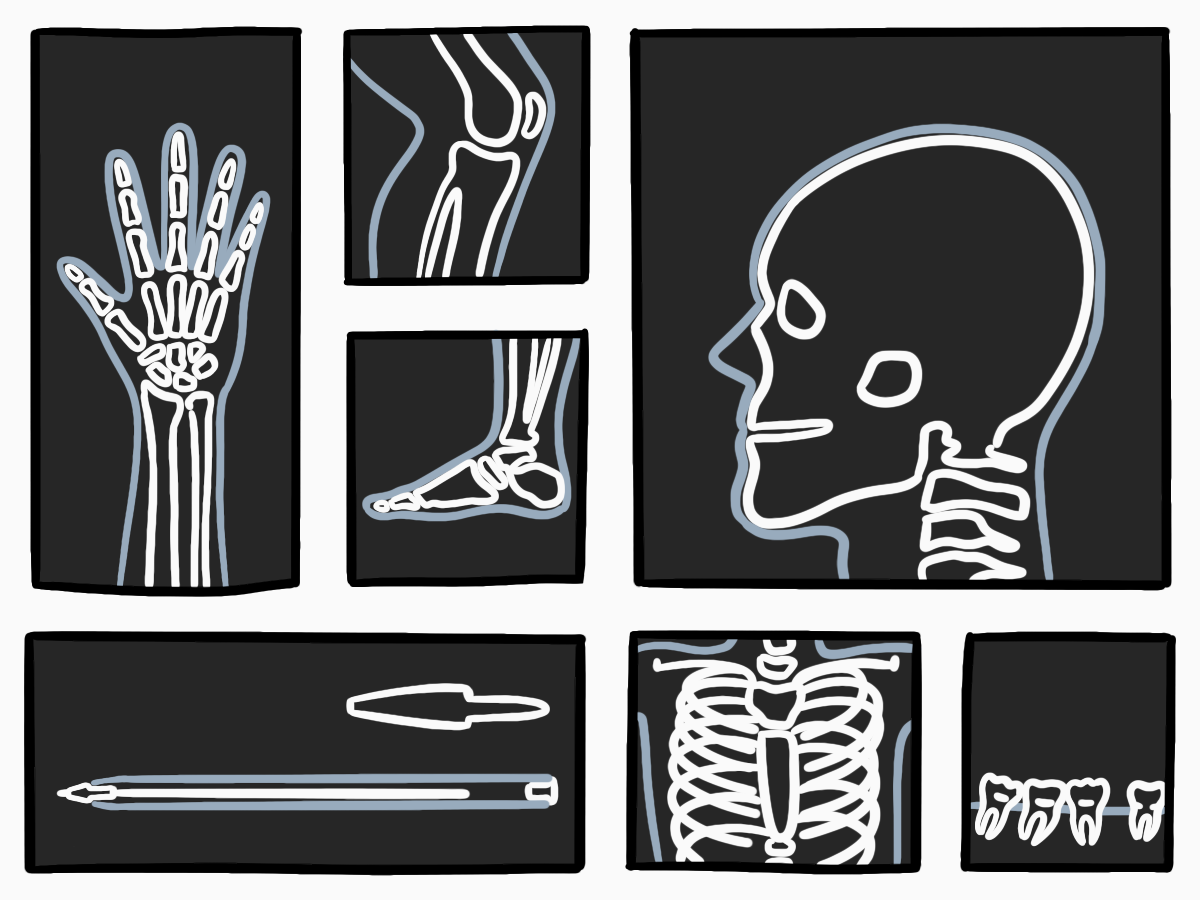
My checklist is as follows:
- Do you know why you’re doing it? – I know I need a light house to be reaching towards so what I’m doing has purpose
- Have you done your research?- I struggle to engage unless I feel like I’m informed, I don’t need to be an expert but I do need to have an idea of what’s involved whether that’s subject matter or process
- Have you spoken to the people you’re doing it for? – I’m a user researcher so this seems obvious, and is a reminder to do the work of meeting and working with people, but this is also important for me within our team or any illustration work I do
- Have you written it down or drawn it? – I like to document everything because a problem articulated on paper is a problem halved, if nothing else it helps me share my thinking and gives me a physical artefact to work with as a starter
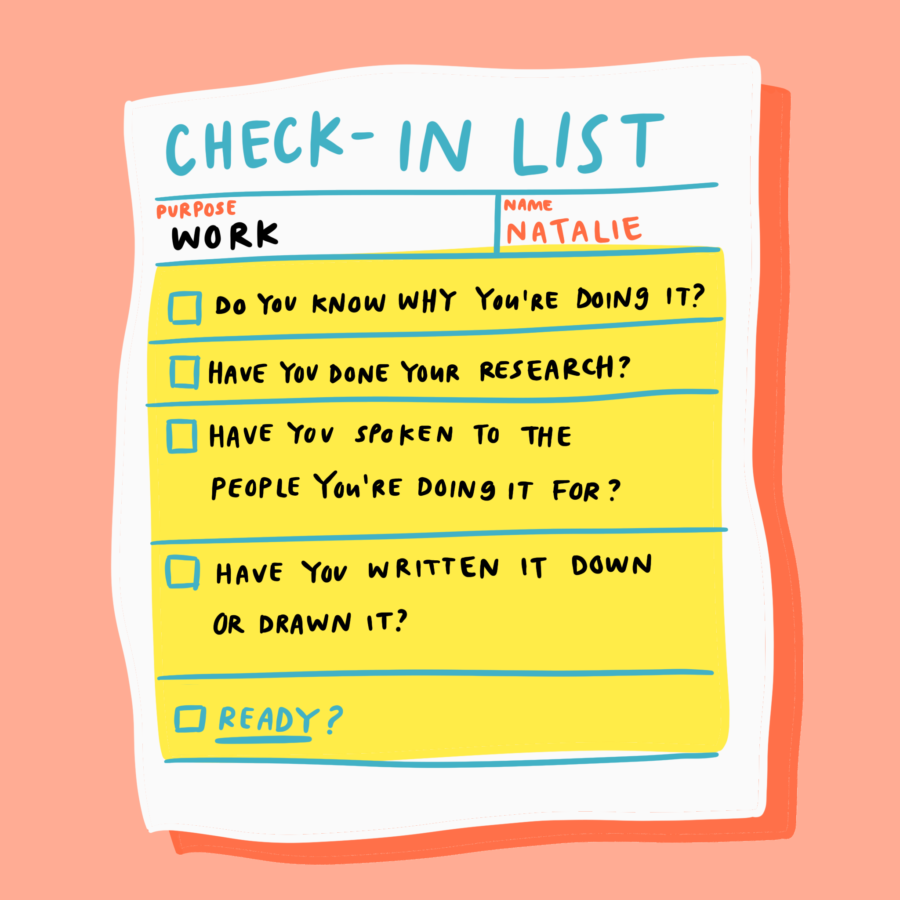
But I wanted to share some of how I got to what I wanted on my own checklist, in case anyone else wanted to create their own spot diagnostic.
I started off by writing about what was happening at times when I felt good doing the activity, in this case my job. I tried to break it down into the smallest most basic things I could. At times it felt like I was being too simple, I ended up with some of the most elemental building blocks, but there’s a reason those things can be seen as clichéd foundations.
Once I had my big list of things that were going on when I felt good, or was working on something good, I whittled down the list to the things that felt the most important or the most common across those times. I did my best to balance specific things, that felt really tangible, and making the list general and widely applicable. With that short list in hand, I started building my diagnostic.
Learning from the Born to Run example I made my diagnostic things I could check off. They had to be literal, not abstract. There are no feelings on the list, just actions. They are the things I can do that signal or build up to the more abstract things on my list.
Then I drew it up into a format I could use.
If you want to make your own, here’s a template you can use. (The styling of this template was heavily influenced by Bill Brown’s guest check illustration)
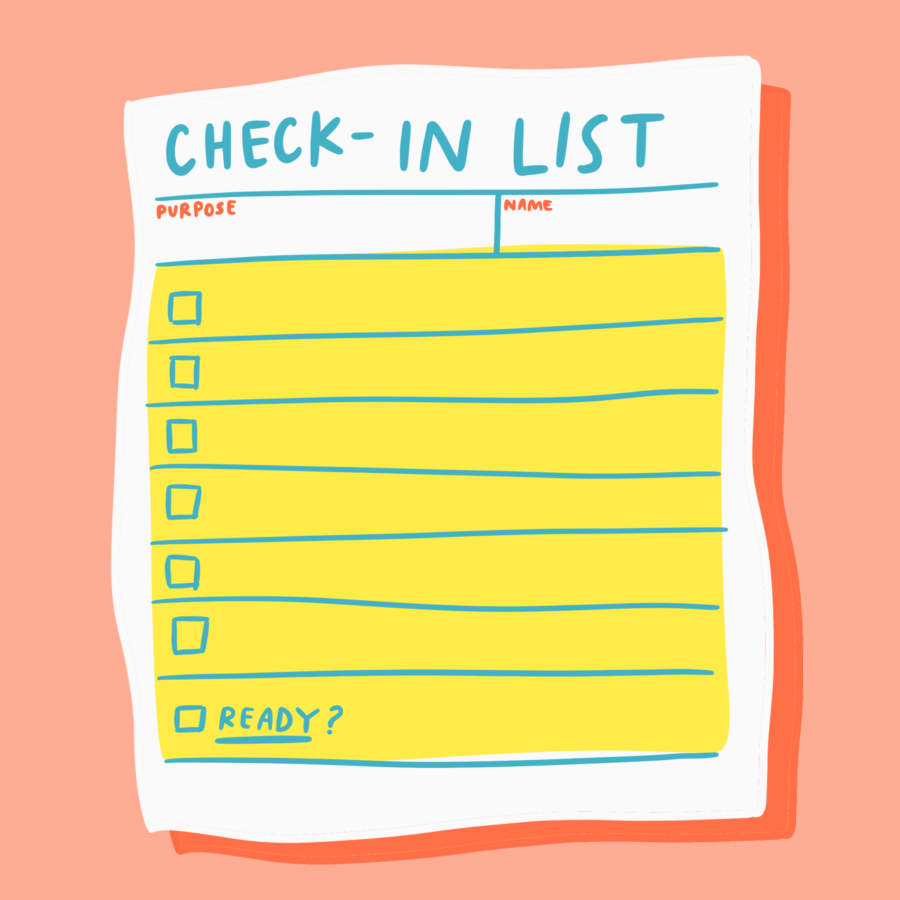
My checklist sits proudly (digitally and physically) as a post it note on my desk and desktop. It’s a clear visible reminder to check in with myself. I’m hoping that having that visual cue, the reminder to check myself before I wreck myself, will eventually help me turn this into a habit rather than something I have to consciously do.
But until then…
Do you know why you’re doing it? Yes
Have you done your research? Yes
Have you spoken to the people you’re doing it for? Yes
Have you written it down or drawn it? Yes

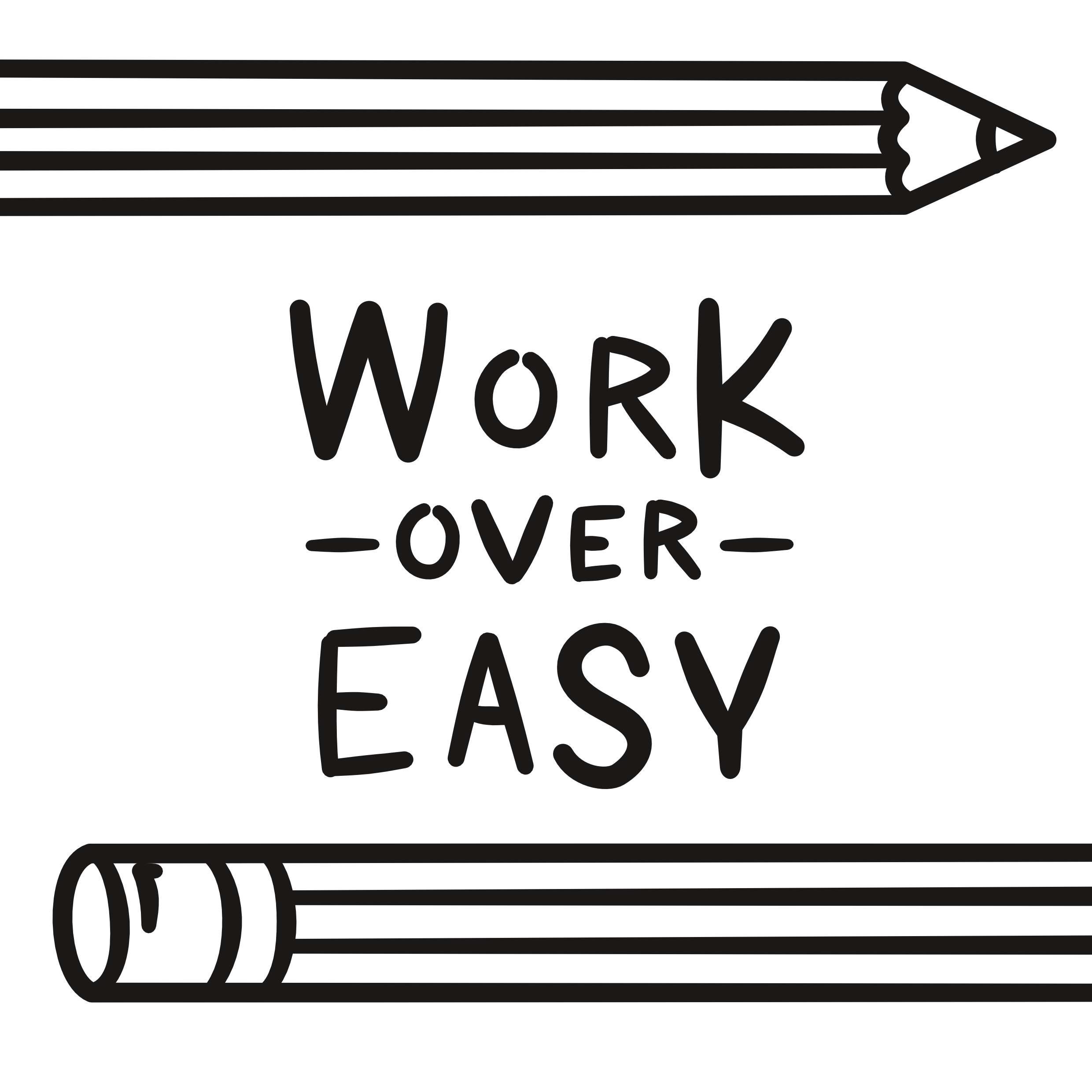
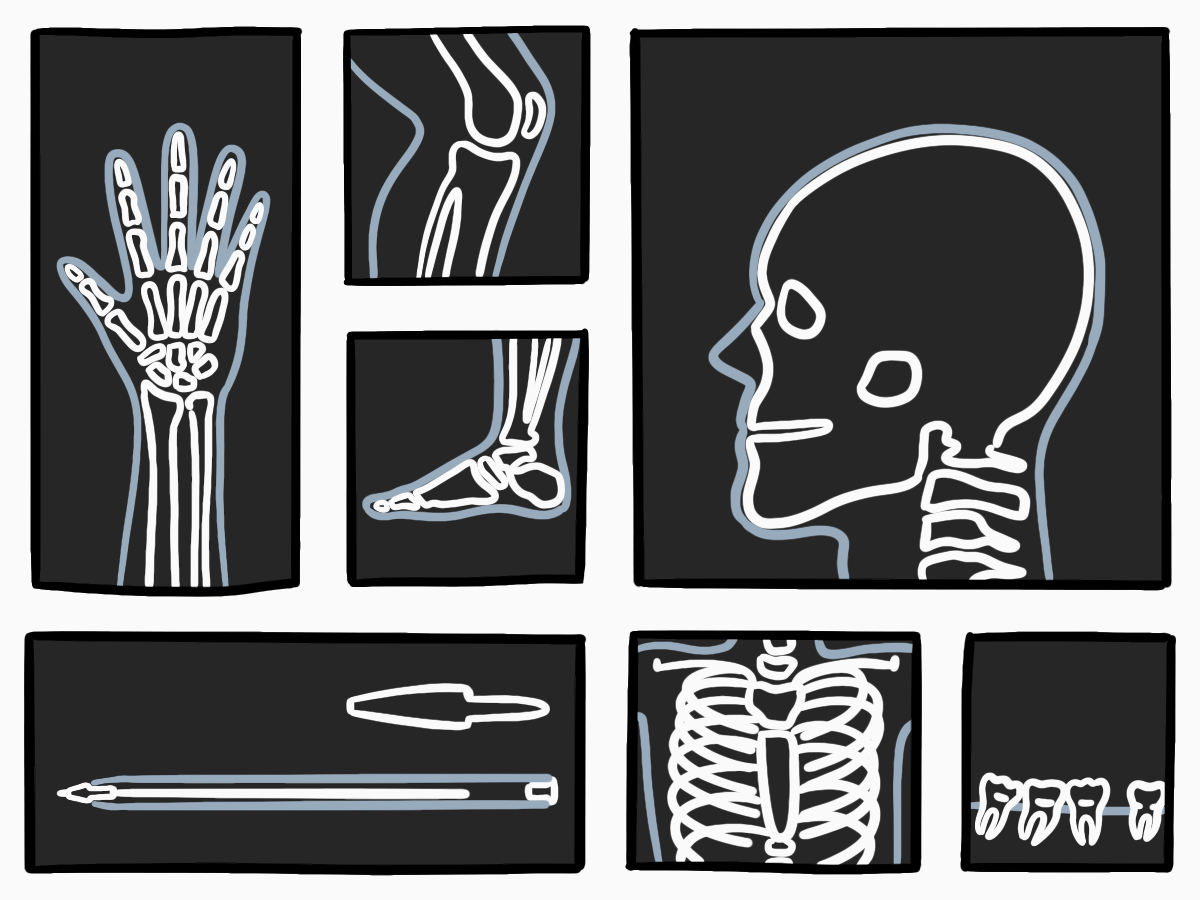
As someone who has been feeling like a bit of a loose end for a couple of weeks (read: months) now, I really like the idea of giving myself something I can look back on during every task I do. As I seem to be having issues getting started or with finishing things, sometimes just floating in the in-between, I definitely need to come up with a checklist myself!
I’m sorry you’re feeling at a loose end. It’s so hard when you don’t have any momentum and I feel like the pandemic has put us in a big old vat of treacle. For me having a checklist and trying to keep it really stupidly simple helps, I hope it works for you too or that you find something else that does! If you ever want to chat, my various inboxes are always open even if my replies are a bit spotty